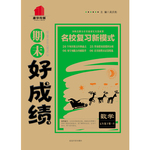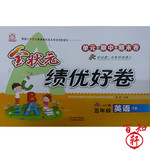
��Must I be home before eight o'clock, Mum?
��No, you ________.But you have to come back before ten o'clock.
A. mustn't B. can't C. needn't D. won��t
C �����������⣺�������裬�ڰ˵�֮ǰ�ұ����ڼ��𣿡��������㲻�أ�������10��֮ǰ����뷵������A. mustn't��ֹ�� B. can't���ܣ�C. needn't���أ�D. won��t���ᡣ����must��ͷ��һ�����ʾ�ģ����ش���needn't���������⣬��ѡC�� ��ĩ�óɼ�ϵ�д�
��ĩ�óɼ�ϵ�д� 99��1������ĩ��ѵ��ϵ�д�
99��1������ĩ��ѵ��ϵ�д� ��ǿ��У��ĩ���100��ϵ�д�
��ǿ��У��ĩ���100��ϵ�д� �óɼ�1��1��ĩ���100��ϵ�д�
�óɼ�1��1��ĩ���100��ϵ�д� ��״Ԫ���źþ�ϵ�д�
��״Ԫ���źþ�ϵ�д�
| �꼶 | ���пγ� | �꼶 | ���пγ� |
| ��һ | ��һ��ѿγ��Ƽ��� | ��һ | ��һ��ѿγ��Ƽ��� |
| �߶� | �߶���ѿγ��Ƽ��� | ���� | ������ѿγ��Ƽ��� |
| ���� | ������ѿγ��Ƽ��� | ���� | ������ѿγ��Ƽ��� |
��Ŀ������Ӣ�� ��Դ���˽�����unit 9 What does he look like ������ϰ ���ͣ��Ķ���ѡ
There is a student from China in our class. He is very good at his lessons, but he is also very shy. He doesn��t talk too much with us because he thinks that there are so many differences. When he came into our classroom for the first time, he was so frightened (�ܾ���) that he cried out.
That��s because of our appearances. For example, his hair is short, black and straight, but ours are all different from his. Jim��s hair is yellow and much longer than his. Dave��s hair is curly and brown. Kitty��s hair is blonde. Our builds and clothes seem to be strange in his eyes,too. Peter is a boy. He is tall and thin, but he wears a colorful T-shirt.
1.How many students are described (����) in the passage?
A. Three. B. Four. C. Five. D. Six.
2.What does the word ��differences�� mean?
A. ���� B. ��� C. ��ҵ D. ����
3.Whose hair is curly?
A. Jim��s. B. Dave��s. C. Kitty��s. D. Peter��s.
4.Why did the student cry out when he came into our classroom for the first time?
A. Because he is Chinese.
B. Because he didn��t like to be a student of our class.
C. Because our appearances frightened him too much.
D. Because he was ill.
5.Which of the following statements (����) is NOT true?
A. The student with straight hair is from China.
B. Jim��s hair is shorter than that of the Chinese.
C. Our clothes are also different from that of the Chinese.
D. The color of Kitty��s hair is blonde.
1.C 2.B 3.B 4.C 5.B ��������������������Ľ�����һ���й�ѧ�������ǵ���ò��ͬ������һ�ν������ǵĽ���ʱ�������ǵ���ò�ſ��ˡ�����ͷ���Ǻ�ɫ�ģ�ֱ�ŵĶ̷������ǵ�ͷ���в�ͬ����ɫ����״���������������ǵ����ͺ��·��ƺ�����ֵġ� 1. 2. 3. 4. 5.�鿴�𰸺ͽ���>>
��Ŀ������Ӣ�� ��Դ��Unit 5 Why do you like pandas������ϰ ���ͣ��Ķ���ѡ
The polar bear is a very white bear��We call it the polar bear because it lives inside the Arctic Circle near the North Pole��There are no polar bears at the South Pole��
The polar bear lives in the snow and ice��At the North Pole there is only snow��ice and water��There is not any land��You cannot see the polar bear in the snow because its coat is yellow-white��It has a very warm coat because the weather is cold at the north of the Arctic Circle��
The polar bear is three meters long��and it weighs 450 kilos��It can stand up on its back legs because it has very wide feet��It can use its front legs like arms��The polar bear can swim well��It can swim 120 kilometers in the water��It catches fish and sea animals for food��It goes into the sea when it is afraid��
People like to kill the polar bear for its beautiful white coat��The governments of Canada��the USA and Russia say that no one can kill polar bears now��They do not want these beautiful animals to die��
1.The polar bear lives ________��
A. at the South Pole B. near the North Pole C. in warm countries D. everywhere
2.At the North Pole there is no ________��
A. ice B. snow C. water D. land
3.You cannot see the polar bear in the snow because ________��
A. it has a yellow-white coat
B. it can run very fast
C. it goes under the snow
D. it goes into the water
4.How big is the polar bear?
A. It��s 3 meters long and it weights 400 kilos��
B. It��s 4 meters long and it weighs 450 kilos��
C. It��s 4 meters long and it weighs 400 kilos��
D. It��s 3 meters long and it weighs 450 kilos��
5.The polar bear _______ for food��
A. catches land animals
B. catches sea animals and fish
C. looks for trees
D. looks for fruit and vegetables
1.B 2.D 3.A 4.D 5.B �����������Ľ����˱����ܵ�����ص㡣�����ĵ����ص㡣������Ҳ�����˱����ܵ���̬�����ء����߷�ʽ�ȡ� 1.ϸ�������⡣�ɾ��ӡ�We call it the polar bear because it lives inside the Arctic Circle near the North Pole���� ��֪�����dz���Ϊ����...�鿴�𰸺ͽ���>>
��Ŀ������Ӣ�� ��Դ��Unit 5 Why do you like pandas������ϰ ���ͣ���ѡ��
My brother doesn��t like________ vegetables.
A. ate B. eats C. eat D. eating
D �����������⣺�Ҹ�粻ϲ�����߲ˡ����⿼��like�����ʵ��÷�����like doing sth.����Ϊ��ϲ����ij�¡�����ѡD���鿴�𰸺ͽ���>>
��Ŀ������Ӣ�� ��Դ���˽̰�2018����꼶�²�Ӣ�� unit3 ��3��ʱ��sectionA Grammar focus-4c������ ���ͣ���ѡ��
On my way _______ home, I pass _______a fruit shop every day.
A. to, by B. to, past
C. \, by D. of, for
C ��������������������⣺����ÿ���ڻؼҵ�·��Ҫ����һ��ˮ���ꡣOn one��s way home��ij�˻ؼҵ�·�ϣ�pass by��������ȥ������ѡC���鿴�𰸺ͽ���>>
��Ŀ������Ӣ�� ��Դ���˽̰�2018����꼶�²�Ӣ�� unit3 ��3��ʱ��sectionA Grammar focus-4c������ ���ͣ���ѡ��
(2012�㶫��Դ)��Could you please tell me________��
��They��re over there��
A. where are the restrooms
B. where were the restrooms
C. where the restrooms are
D. where the restrooms were
C ������������Ӿ������Ӧ�dz����������ų�A��B�Could you please�����DZ�ʾ��ò����ľ��ͣ���˱������䲻��һ���ȥʱ���ɴ���They��re over there��Ҳ��֪��һ������ʱ������ѡC���鿴�𰸺ͽ���>>
��Ŀ������Ӣ�� ��Դ��ţ�����ְ����Unit 5 Reading ���ʱ��ϰ ���ͣ���ѡ��
If we do_______, soon there may be no tigers left in the world.
A. something B. nothing C. everything D. anything
B �����������⣺�������ʲôҲ�������ܿ������ϾͲ������ϻ��ˡ��ĸ�ѡ���Ϊ�������ʣ�A. somethingij�¡�ij�B. nothingʲô��û�У�C. everythingÿ���£� D. anything�κ��¡����ݾ����֪�˴�Ϊ ��ʲô��û�С�����˼����ѡ��B���鿴�𰸺ͽ���>>
��Ŀ������Ӣ�� ��Դ��ţ�����ְ�ˣ��ϣ����嵥Ԫ����Ӣ���Ծ� ���ͣ���ѡ��
---My mother was ill in hospital last week. --- _____.
A. What a shame B. It doesn��t matter C. That��s right. D. I��m sorry to hear that
D �����������⣺����������ĸ������סԺ�ˡ��������������Ϣ�Һ��ѹ���A. What a shame���ź��� B. It doesn��t matterû��ϵ��C. That��s right. ���ǶԵģ�D. I��m sorry to hear that���������Ϣ�Һ��ѹ�������ᄈ�����֪����ΪD,�鿴�𰸺ͽ���>>
��Ŀ������Ӣ�� ��Դ��2017-2018ѧ�����꼶Ӣ���˽̣��ϣ�Unit 9��Ԫ��� ���ͣ���ѡ��
��________ ��Yes.They are my favorite days.
A. What are your favorite days? B. Do you like Saturday and Sunday?
C. What about your favorite days? D. How about Saturday and Sunday?
B �����������⣺-��ϲ������������������-�ǵģ�����������ϲ�������ӡ�What are your favorite days?����ϲ����������ʲô��Do you like Saturday and Sunday?��ϲ��������������What about your favorite days?����ϲ���������أ�How about Saturday and Sunday?������������ô������...�鿴�𰸺ͽ���>>
����ʡ������Υ���Ͳ�����Ϣ�ٱ�ƽ̨ | �����к���Ϣ�ٱ�ר�� | ����թƭ�ٱ�ר�� | ����ʷ���������к���Ϣ�ٱ�ר�� | ������Ȩ�ٱ�ר��
Υ���Ͳ�����Ϣ�ٱ��绰��027-86699610 �ٱ����䣺58377363@163.com